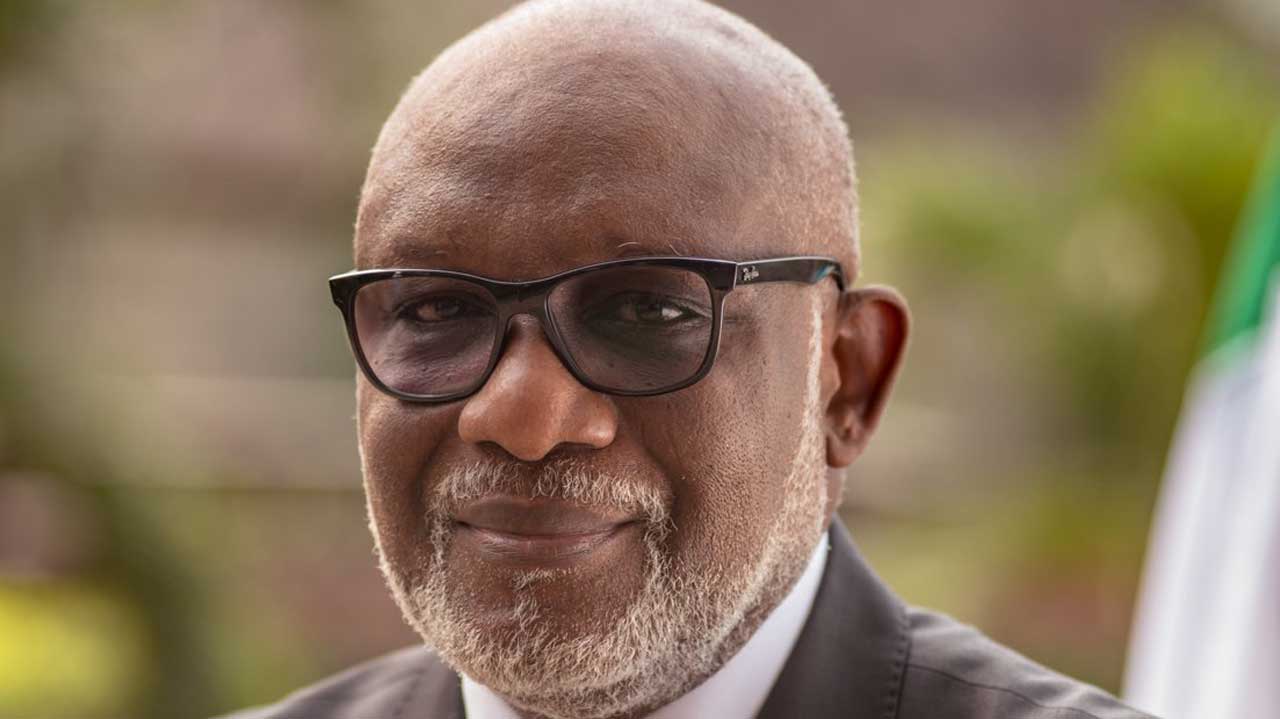
The Ikale people of Okitipupa and Irele local government areas of Ondo State have cautioned Governor Rotimi Akeredolu against aggravating the Araromi-Obu land crisis by the way he intervenes in the matter.
At a press conference at the NUJ Press Centre, Akure, yesterday, the people lamented the utterances of Akeredolu at the palace of Abodi of Ikaleland, Oba George Faduyile in Ikoya when the governor visited the monarch following a clash between the residents of Araromi-Obu in Odigbo Local government and Ikale indigenes in the community on July 16.
An Akure High Court had delivered a judgement in May 2019 ceding 57 out of the 59 communities in Odigbo Local Government Area to the Ikale people.. At the press briefing, the Jagunmolu of Ikaleland, General Oluyemi Bajowa (Rtd), who alleged Governor Akeredolu’s undue interference in the matter, affirmed that the Araromi-Obu and Ikale people have been living together intermarrying one another.
According to him, there are indubitable evidences and documents that the Araromi-Obu people settled in a land that belongs to the Ikale people in the 19th century. “The land case ended in favour of Ikale people on May 13, 2019 when the court, in large measure, granted our counter-claim and restrained the Araromi-Obu settlers from trespassing unto the lands confirmed by the court of law to belong to the Ikale people.
“In our relationship with the Obu people, from the time they became our guests on Ikaleland until now, we have never been the aggressors in any conflict.“In actual fact, they initiated the legal action which led to the judgement at issue. There is no case in existence in which Ikale people are the plaintiffs or claimants against their neighbours.”
Contrary to reports that the Ikale people were the aggressors, Gen. Bajowa said their guests ambushed their hosts on their way to farm with guns, machetes and other dangerous weapons. The Ikale flayed Governor Akeredolu, whom they said “formed an opinion before his visit to the palace of the Abodi of Ikale Land.
“I was shocked and horrified at his public display and pronouncement of power, devoid of decency and protocol, by taking the Abodi and other Ikale traditional rulers present to the cleaners. “He threatened to instruct the security services to level to the ground Ago Alaye and other Ikale villages in Araromi-Obu and its environs; he also threw caution to the wind by boasting that he does not need Ikale votes for his re-election,” the ex-military chief lamented.
“At this point, I had to cut in with reverence and cautioned against any bias and indiscriminate arrest of Ikale people. I also advised the government to abide by the rule of law, whilst I implored the security services to confine their activities to the established/standard operational rule of engagement, noting that we are in a democratic dispensation,” Bajowa added.
He alleged indiscriminate arrest of 15 Ikale people, including an 89-year- old man who have been remanded in prison custody. “Surprisingly, no police arrest hasd been made on the side of Araromi-Obu settlers.”
In a reaction, the Commissioner for Information and Orientation, Mr. Donald Ojogo, dismissed the allegations against the governor, saying the government was committed to keeping peace across the state. “It’s an unfair statement if anyone says the governor is biased in his handling of the crisis.
Recall that he visited both areas and appealed for calm even as he deployed armed security men to the affected conflict zone. “That singular act of swift response by the governor stemmed the crisis, especially as it avoided reprisal attacks from either community.
“Mr. governor’s commitment to peaceful coexistence among communities and ethno-religious groups is sacrosanct and no effort will be spared in this regard. “The state government still maintains its earlier position that all concerned should eschew violence while the issues in question are being looked into,” Ojogo said.



